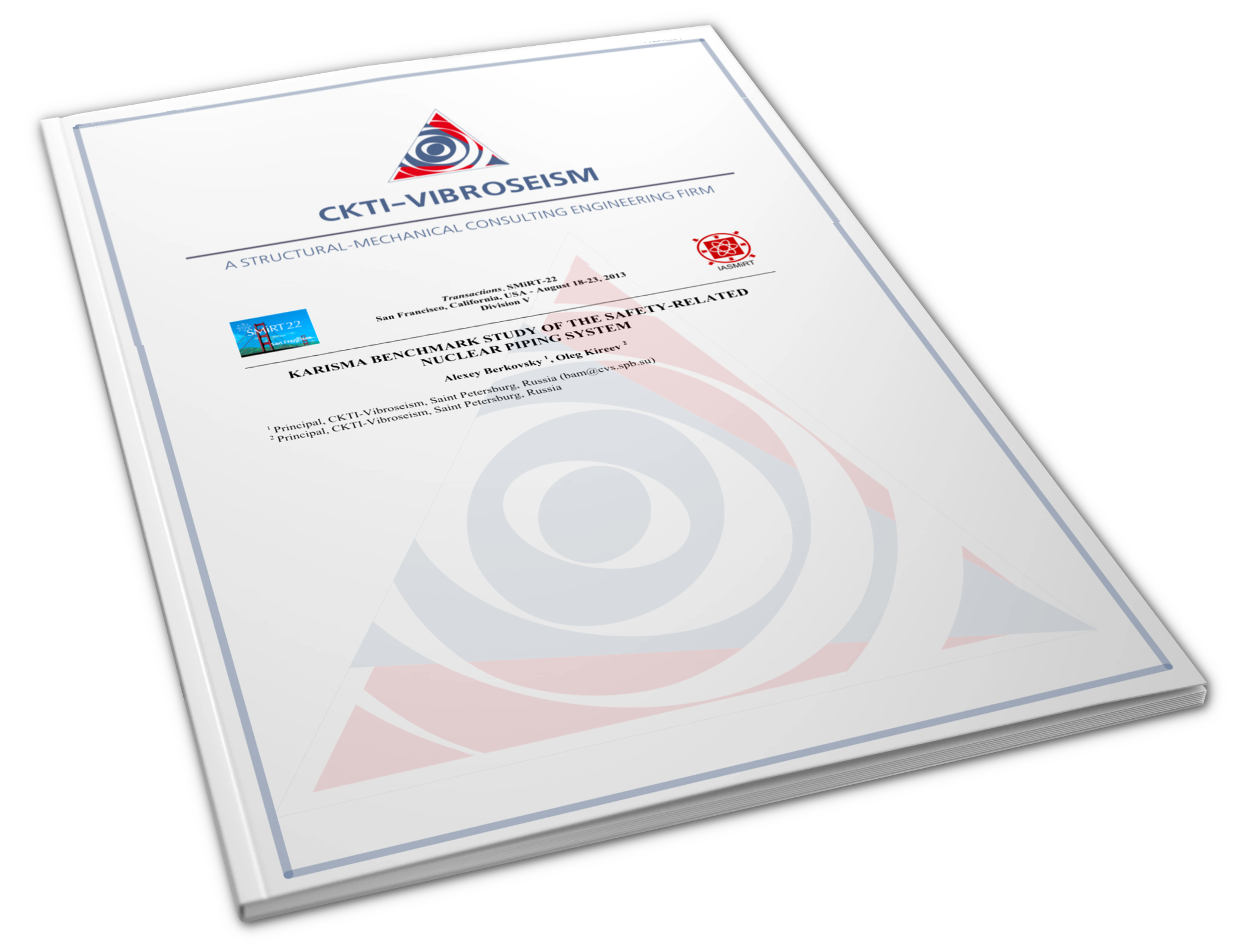Karisma Benchmark Study of the Safety-Related Nuclear Piping System
SMiRT-22, San-Francisco California USA, August 18-23 2013, KARISMA_PAPER

- Авторы: : Берковский А.М. [Alexey M. Berkovskiy], Киреев О.Б. [Oleg B. Kireev]
- Редактор: English
- Страницы: 9
- №: 34
- Библиотека: Conference Papers
- Год: 2013
- Файл: KARISMA_PAPER
Просмотры: 3098
KARISMA is an abbreviation of KAshiwazaki-Kariwa Research Initiative for Seismic Margin Assessment. This International Benchmark Study was launched in the framework of the IAEA program on Seismic Safety of Existing Nuclear Power Plants to provide insight for the following topics: understanding the consequences of the Niigataken-chuetsu-oki (NCO) July 2007 earthquake in relation to dynamic response of structures and equipment; calibration of simulation methodologies and examining their ability to represent observed behavior and identify the main parameters influencing the response; evaluation of margins by quantifying what would happen in soil, structure and equipment, when input is increased.
This paper focuses on the results and experience gained by authors during this Benchmark Study with seismic analysis of Residual Heat Removing (RHR) piping. Scope of the Benchmark included different types and stages of analyses: static analysis has been performed for sustained loads, while calculation of the dynamic response was realized by means of response spectrum method (RSM) and Time History Analysis (THA). Moreover, dynamic response was requested to be defined with the use of two different approaches: uniform and independent support motion (ISM).
The paper discuses the peculiarities of different national rules for piping stress analysis, as well as the techniques of the various types of dynamic analysis: RSM and THA for uniform motion and the same approaches when seismic input is defined differently for different piping supports (independent support motion).
 ООО «ЦКТИ-Вибросейсм»
ООО «ЦКТИ-Вибросейсм» 
